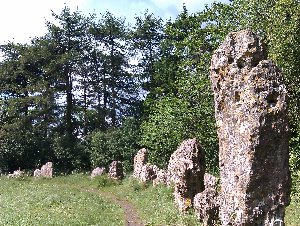
Excerpts from my essay on trance states and the origins of religion in human evolution published at Aeon.
Dunbar believes that a few hundred thousand years ago, archaic humans took a step that ramped up this capacity. They started deliberately to make music, dance and sing. When the synchronised and collective nature of these practices became sufficiently intense, individuals likely entered trance states in which they experienced not only this-worldly splendour but otherworldly intrigue. They encountered ancestors, spirits and fantastic beasts, now known as therianthropes. These immersive journeys were extraordinarily compelling. What you might call religiosity was born. It stuck partly because it also helped to ease tensions and bond groups, via the endorphin surges produced in trance states. In other words, altered states proved evolutionarily advantageous: the awoken human desire for ecstasy simultaneously prompted a social revolution because it meant that social groups could grow to much larger sizes via the shared intensity of heightened experiences…
The suggestion is, therefore, that higher-order intentionality helped our ancestors consciously to incorporate visionary dimensions of existence into the complex interactions of their lives: it meant that humans could forge more organised sets of shamanistic practices and develop animistic worldviews.
It took a long time. There’s archaeological evidence that this kind of systematisation reaches back some tens of thousands of years. The evidence is found in the form of deliberate burials, ornamental artefacts and cave art. How to interpret such prehistoric remains is widely disputed, of course, but if Neanderthals possessed perhaps four orders of intentionality, and so engaged in simple burial practices, our closest ancestors possessed more. From these more sophisticated cognitive capacities flowed complex rituals, increasingly elaborate burials and the making of objects such as the Olduvai handaxe, the significance of which is that its design far exceeds the requirements of its function, something not seen in earlier handaxes…
You might say that religions are caught between the Scylla of socially useful but potentially dreary religious rites and the Charybdis of altered states that are intrinsically exciting but socially disruptive. It’s why they bring bloody conflicts as well as social goods. This way of putting it highlights another feature of the trance theory. It interweaves two levels of explanation: one focused on the allure of spiritual vitality; the other on practical needs.
It’s a crucial coupling because other research indicates that these vertical and horizontal dimensions of experience need to be brought together to account fully for what makes us human…
Of course, science cannot decide whether the claims of any one religion are true. But the new theory still makes quite a strong claim, which brings me back to the role of the supernatural, transcendence and religious gods that today’s secularists seem inclined to sideline. If the science cannot confirm convictions about any divine revelations received, it does lend credence to the reasonableness, even necessity, of having them. Where the big gods and false agency hypotheses seemed inherently sniffy about human religiosity, the trance hypothesis positively values it. As Fuentes writes: ‘Meaning-making, the transcendent, and openness to revelation and discovery are core parts of the human niche and central to our evolutionary success.’..
It’s often said that many of today’s troubles, from divisive political debates to spats on social media, are due to our tribal nature. It’s added, somewhat fatalistically, that deep within our evolutionary past is the tendency to identify with one group and demonise another. We are destined to be at war, culturally or otherwise. But if the trance theory is true, it shows that the evolutionary tendency to be tribal rests on an evolutionary taste for that which surpasses tribal experience – the transcendence that humans glimpsed in altered states of mind that enabled them to form tribes to start with.
If we long to belong, we also long to be in touch with ‘the more’, as the great pioneer of the study of religious experiences William James called it. That more will be envisaged in numerous ways. But it might help us by prompting new visions that exceed our herd instincts and binary thinking, and ease social tensions. If it helped our ancestors to survive, why would we think we are any different?
To read the complete essay click here.